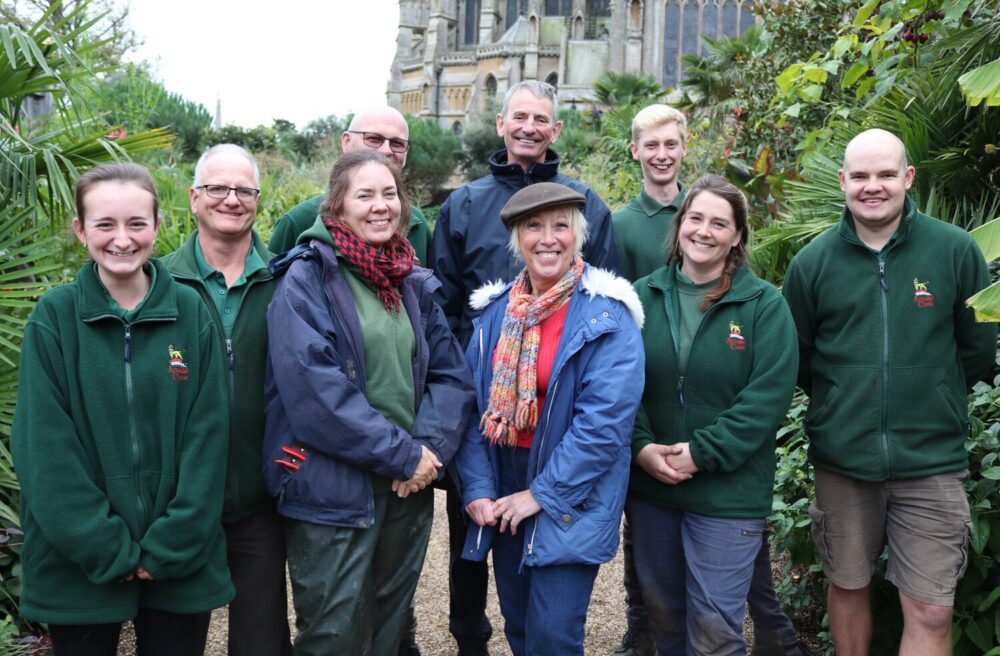THE blossoming botanical career of a ground-breaking gardener featured on a national television programme.
Martin Duncan, Head Gardener and Landscape Designer at medieval Arundel Castle in West Sussex, featured on the latest series of Channel 5’s Great British Gardens.
A former student at the Welsh College of Horticulture in Northop – now Coleg Cambria – Martin has travelled all over the world creating, managing, and developing gardens for more than three decades.
He was Head Gardener to the late King Hussein and Queen Noor of Jordan at their private palace, Senior Superintendent for Bermuda Botanical Gardens and national parks, and has tended to land in France, Northern Ireland, London, Audley End – an English Heritage stately home in Essex – and in his homeland, Zimbabwe.
But Martin cites his time in North Wales, where he arrived as a 26 year-old mature student in 1989 to study Advanced Landscape Construction and NEBS Management, as one of the best periods of his life.
“I loved it at Northop, the things I learned there have served me well over the years and played a big part in my career,” said Martin, a recipient of the Kew Guild Medal for distinguished services in horticulture in 2018.
“I had worked on game parks back in Zimbabwe as part of my National Service and really took to it, so from there I studied at Greenmount College in Northern Ireland and went on to Wales where I met some great people who are still friends to this day.
“We had an amazing community there and I was lucky to have been able to live with a local family on their nearby farm, who I am still in touch with to this day thanks to social media.
“We would go rock climbing, wind surfing and walking in the countryside, and we had a pretty handy rugby team – they were great days.”
Having been at Arundel Castle for 12 years, Martin has had a major impact on the gardens and landscape.
He is currently working on a project that will incorporate a dipping lake after unveiling new Water Gardens designed using the original footprint of the castle’s medieval fish ponds, a scheme which won them the Sussex Heritage Trust Award for Gardens and Landscapes in 2020.
There’s also a new stumpery and Martin is proud to have founded one of the largest annual tulip festivals in the country.
Now aged 60, he plans to continue pushing the envelope with innovative and sustainable green developments and says his recent appearances on TV and radio have been an enjoyable experience.
“As they filmed the Great British Gardens series across four seasons, we had the opportunity to try some interesting things, and given the Coronavirus pandemic our tours were taken online, so I would present them virtually – a new experience for me,” he said.
“I hope we get to do more TV in the future as it is important to demonstrate the work we do here, and to encourage future generations of budding gardeners.
Martin added: “I’m fortunate to have had a fantastic career, travelling all over the world, and meeting the most incredible people along the way.
“The Welsh College of Horticulture laid the foundations for what was to come – especially how I draw and design gardens – so I will always remember it fondly.”
Great British Gardens is now available to watch on My5: www.my5.tv
Visit www.cambria.ac.uk for more on the wide range of courses and qualifications available at Coleg Cambria.
